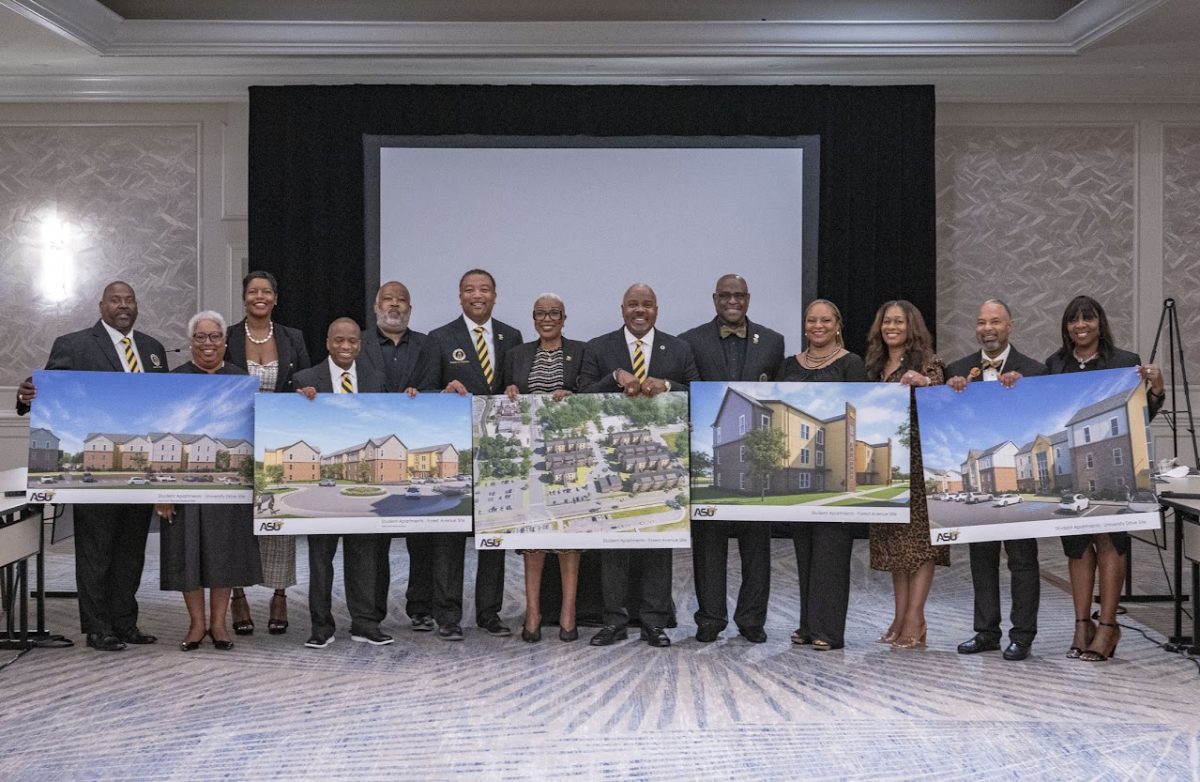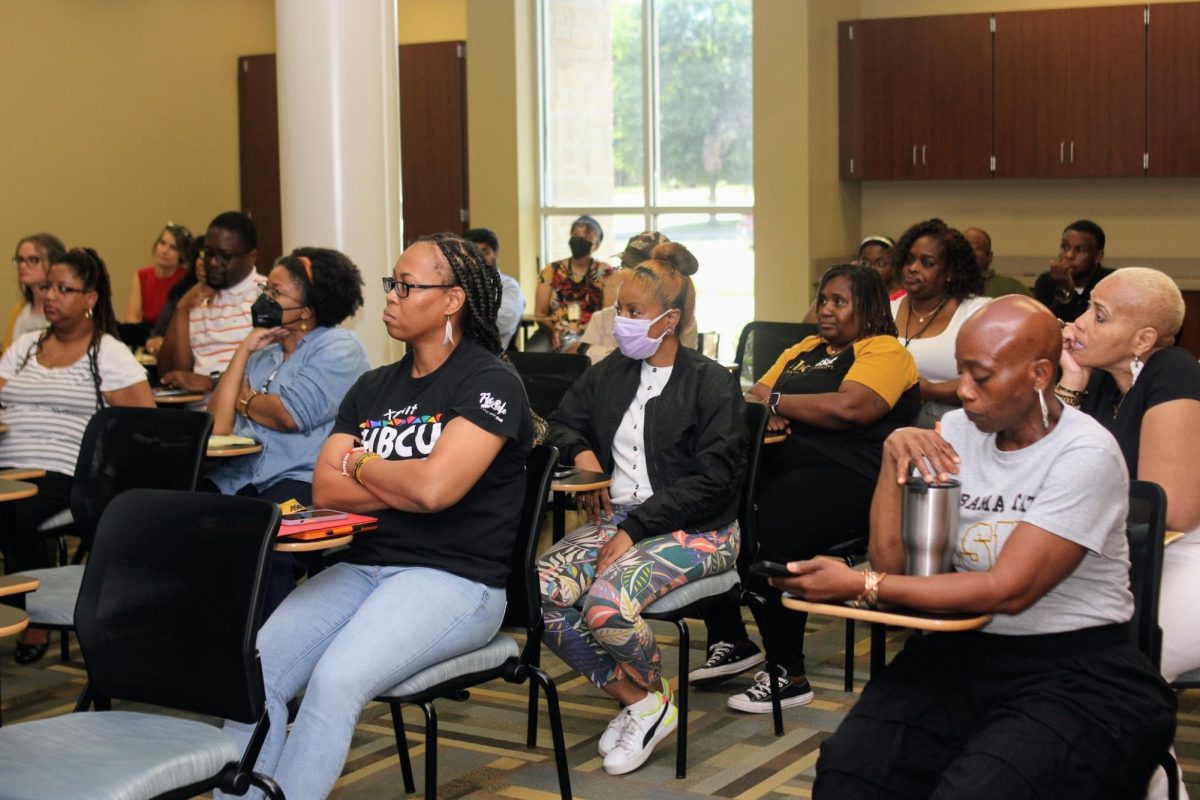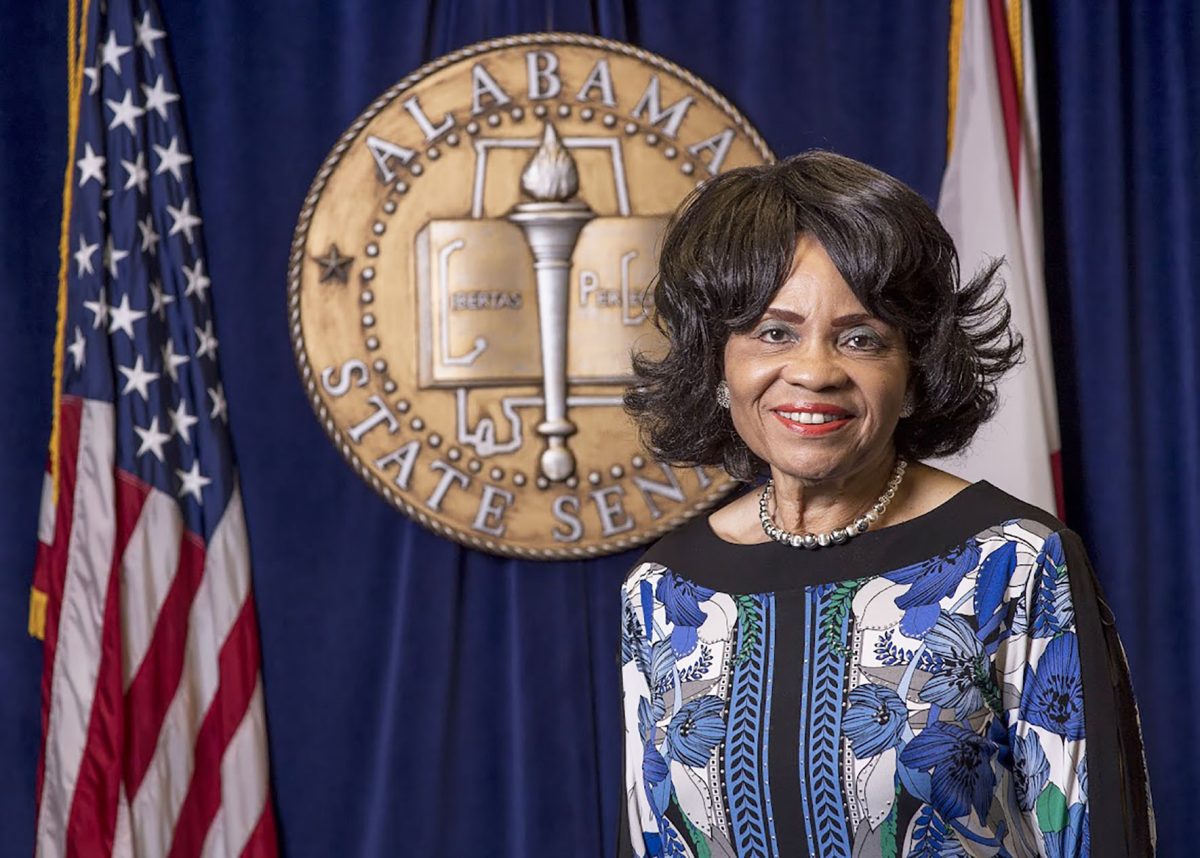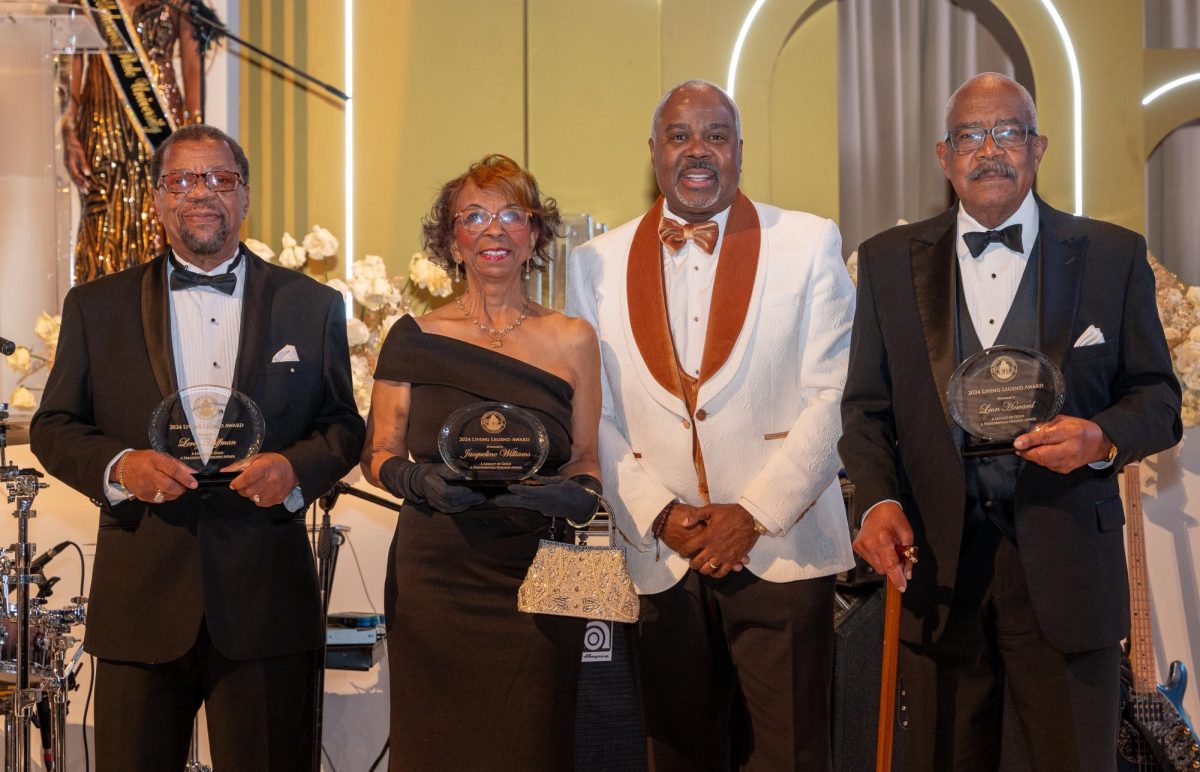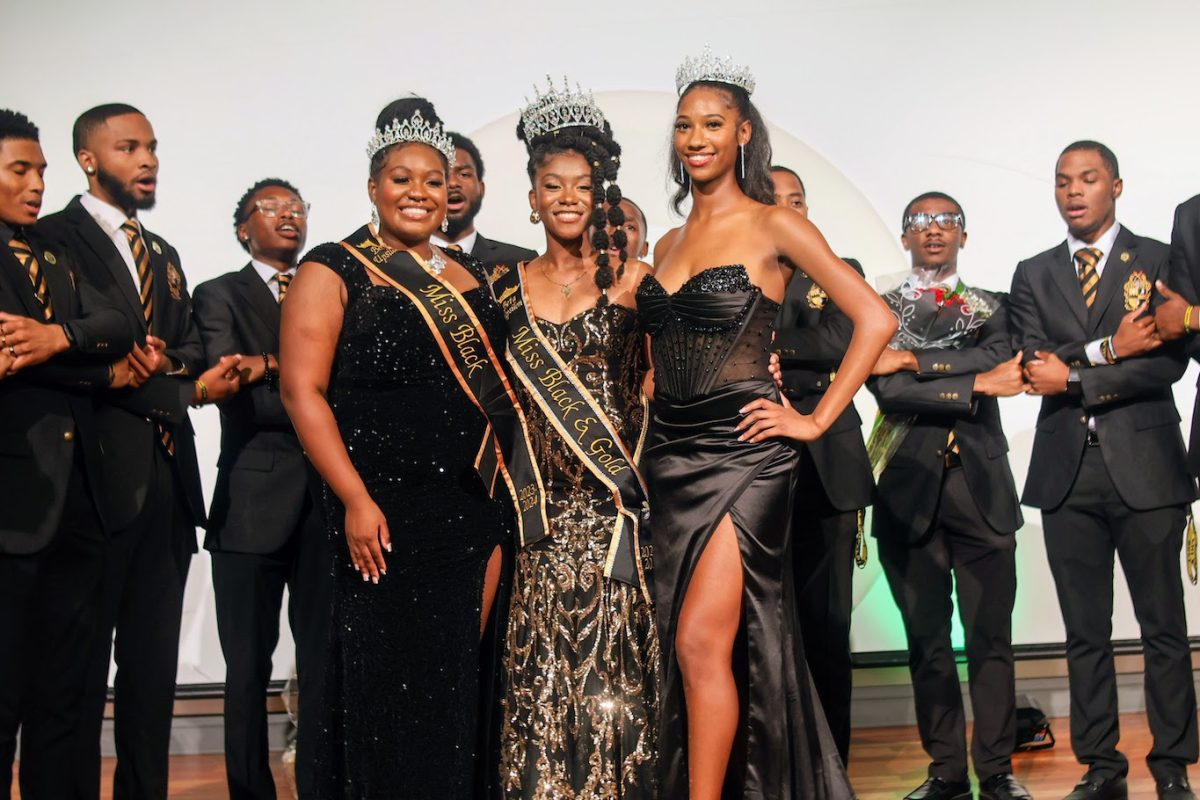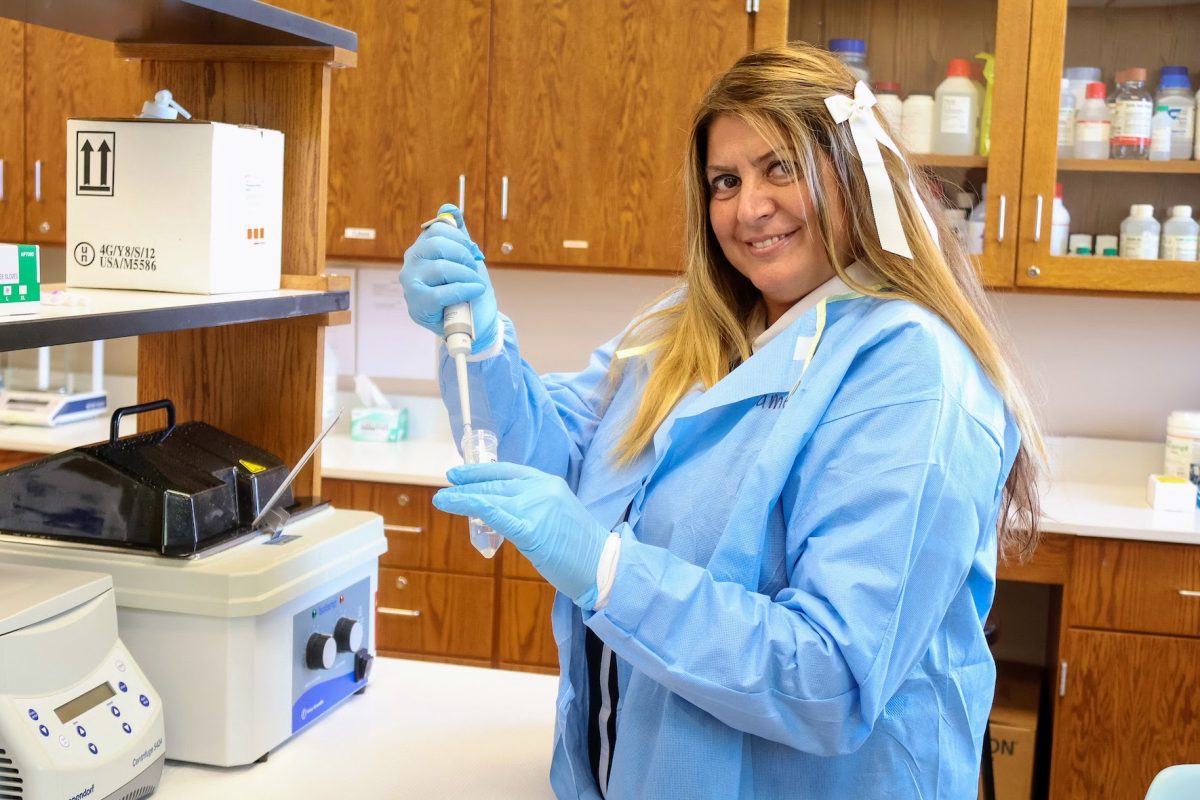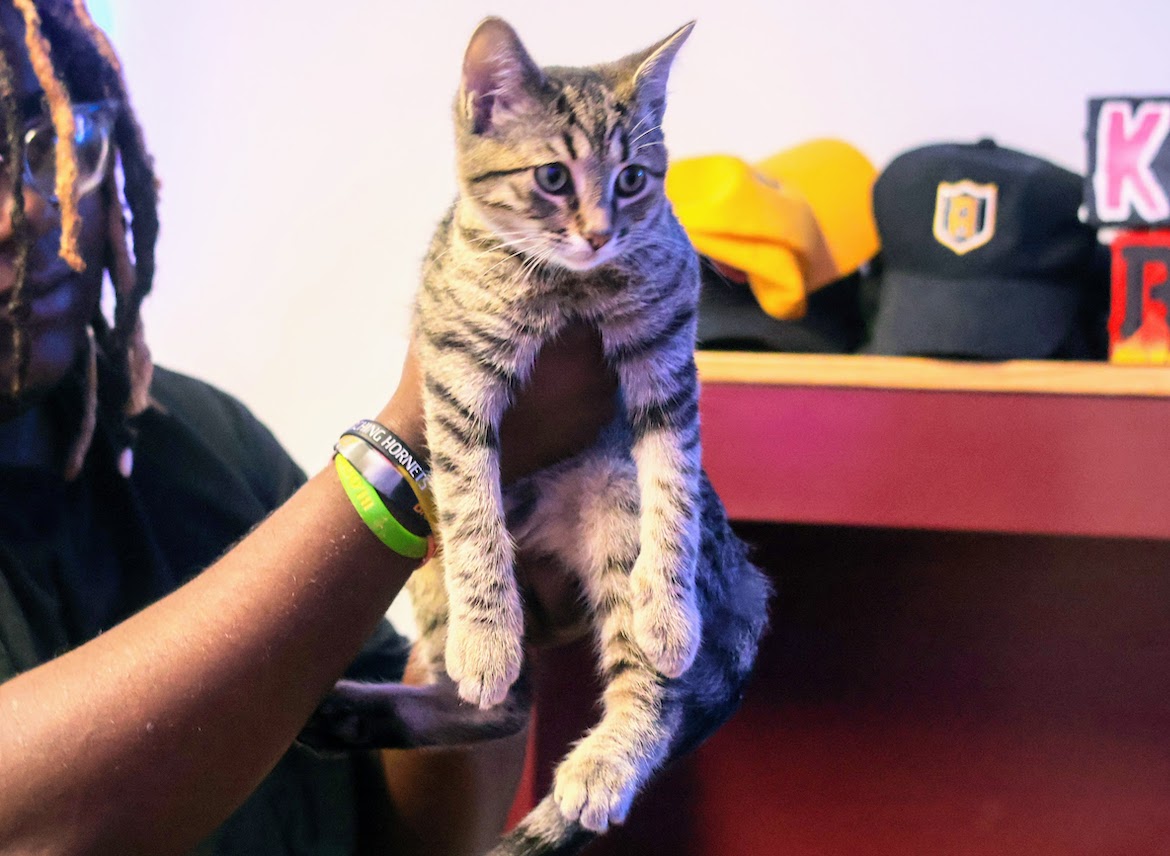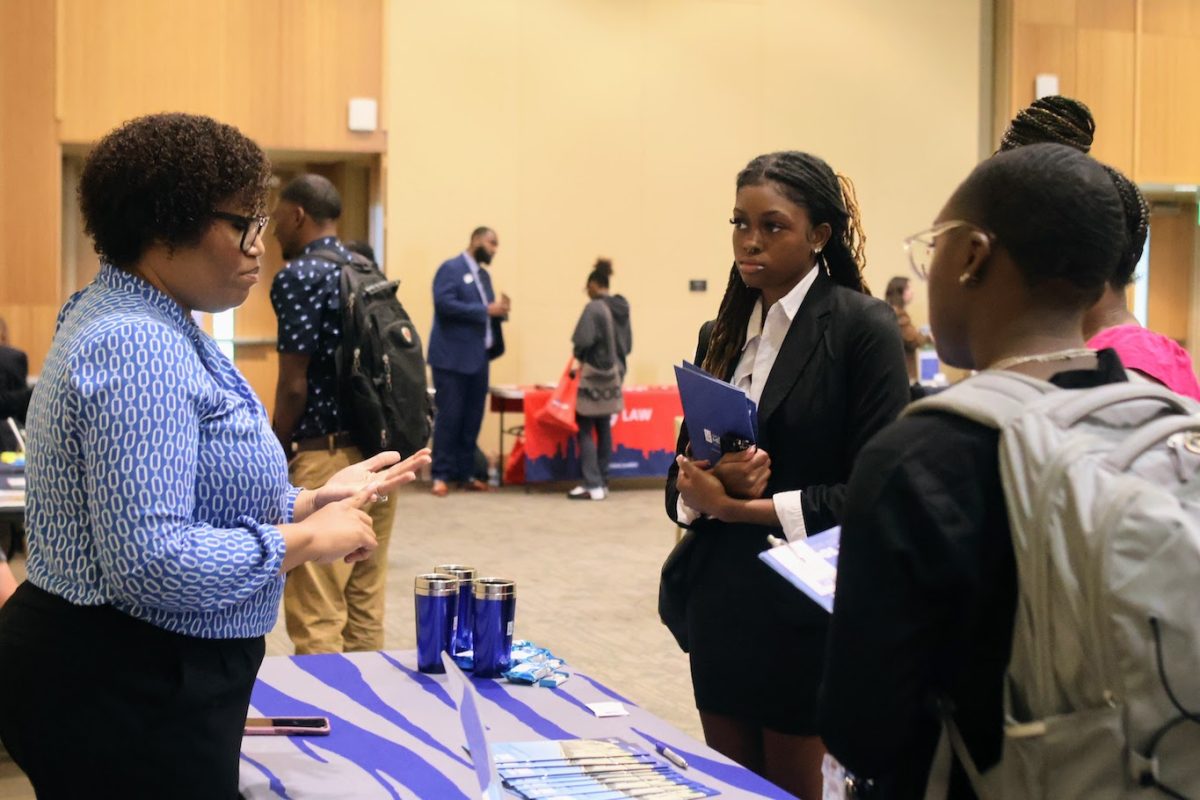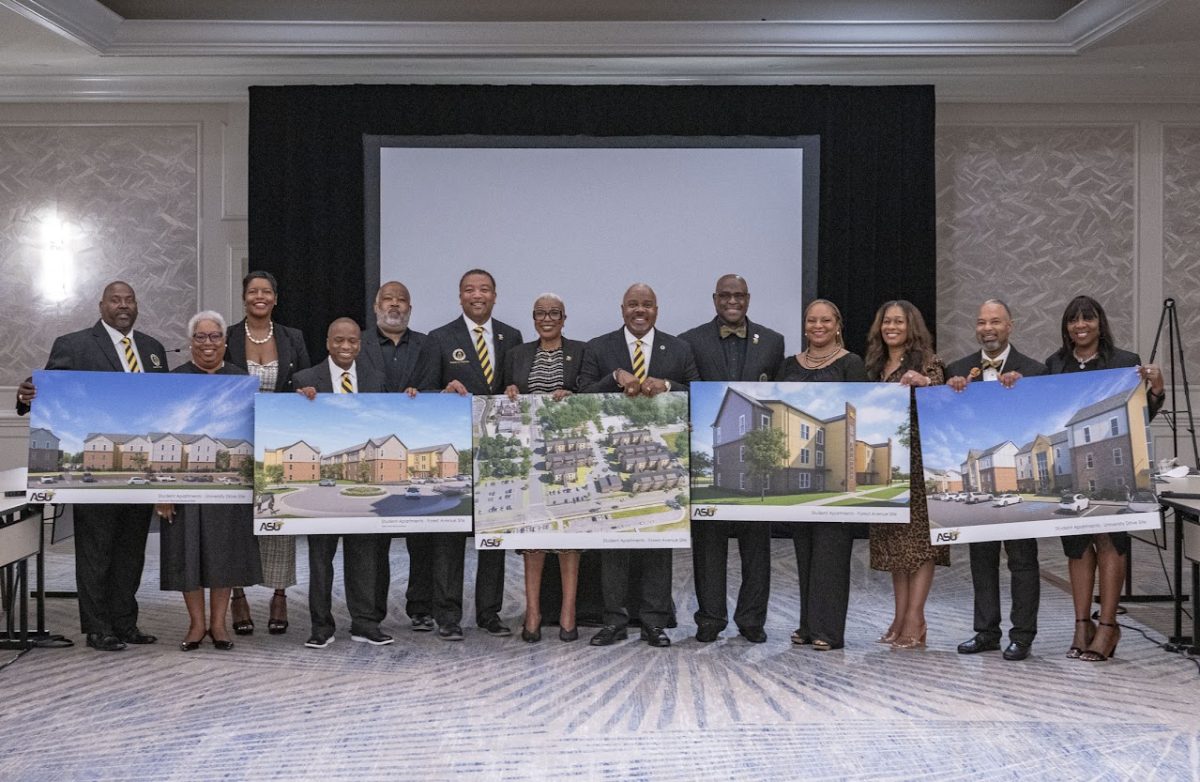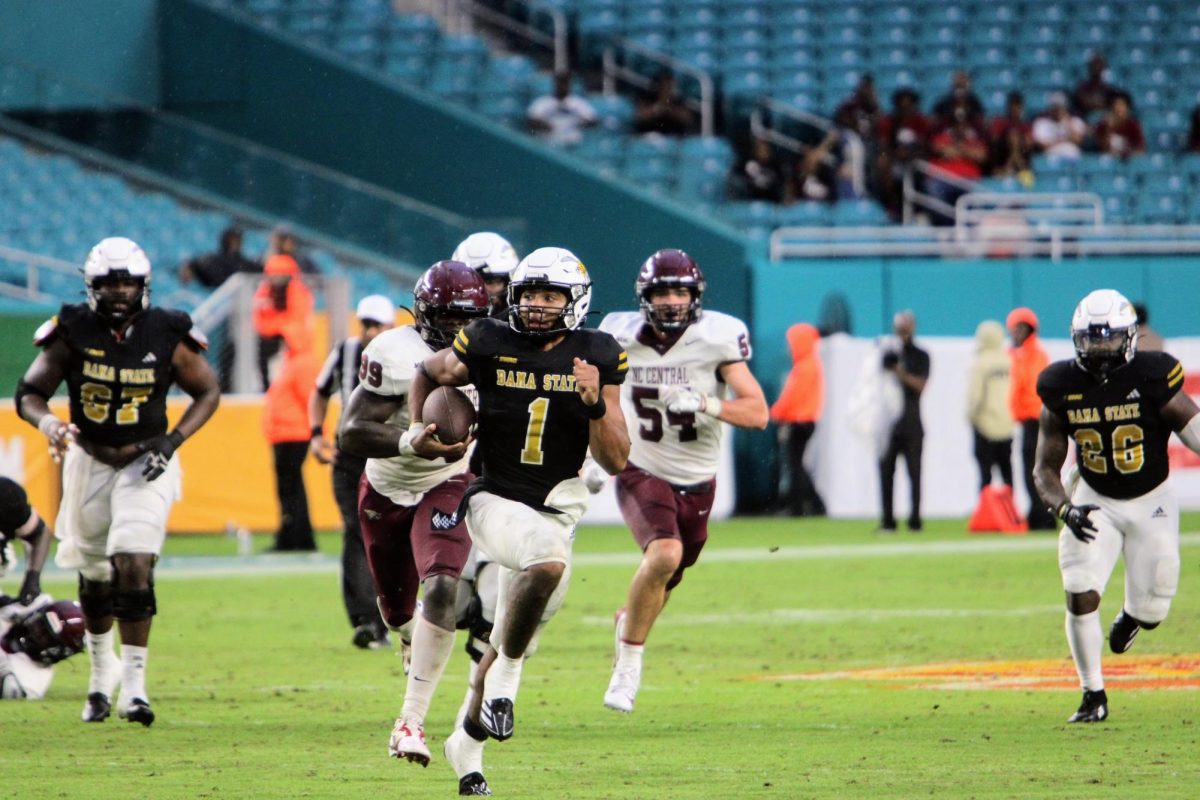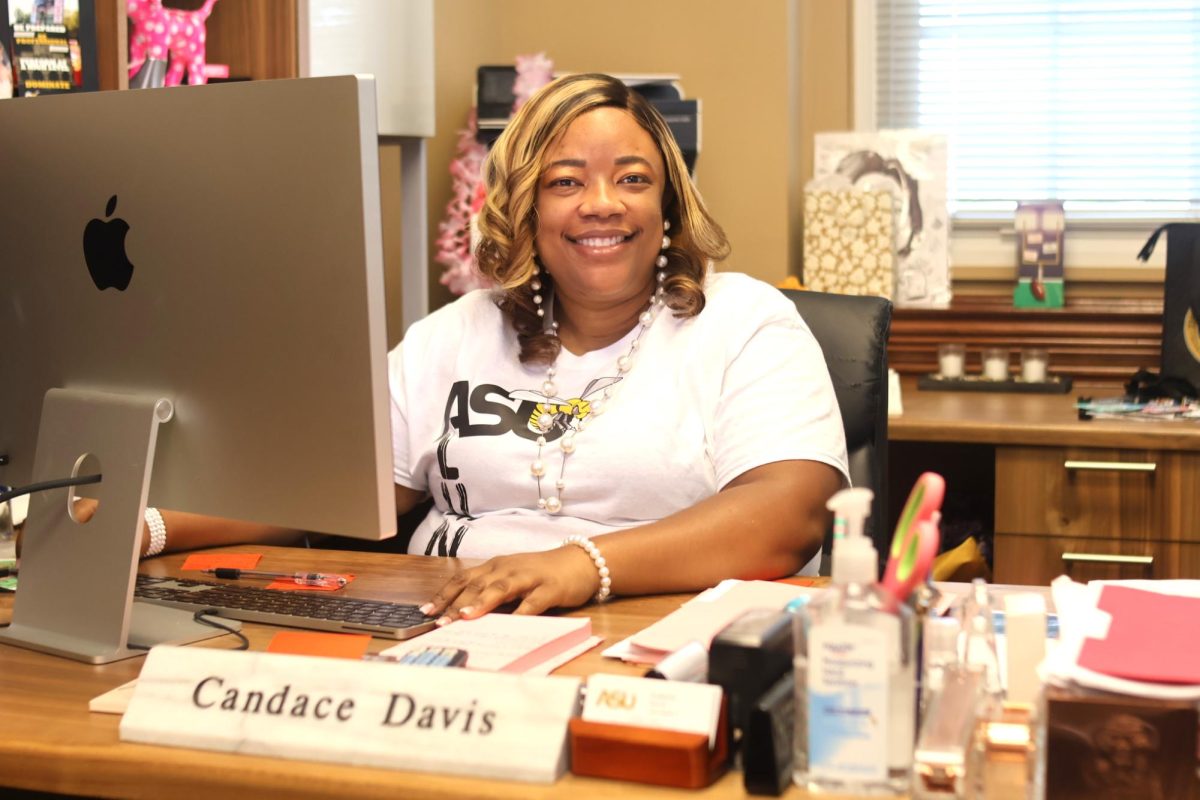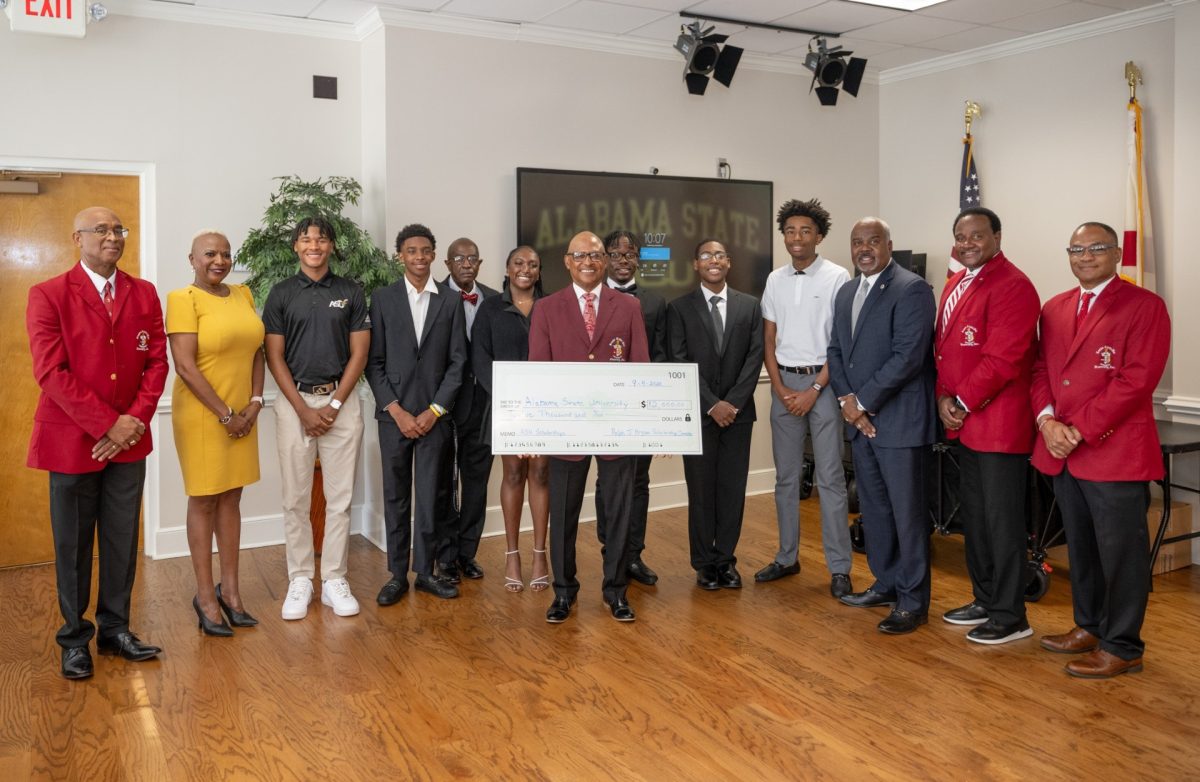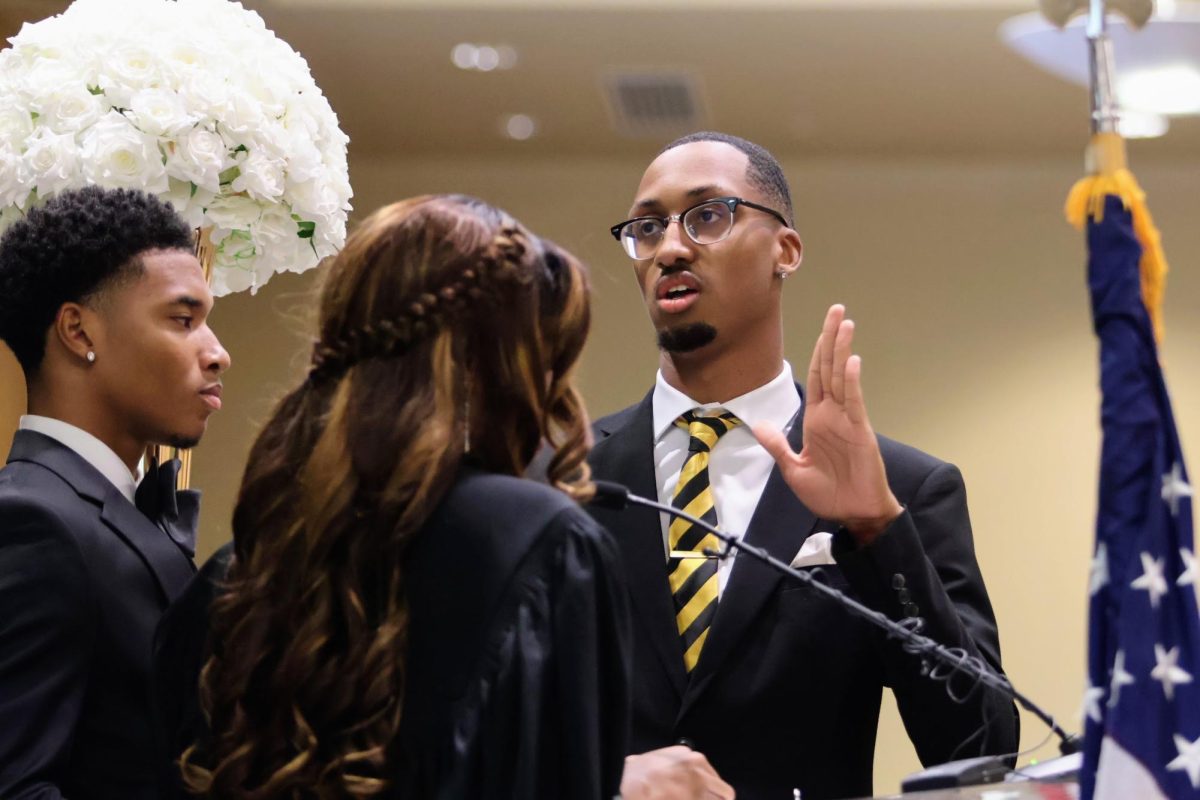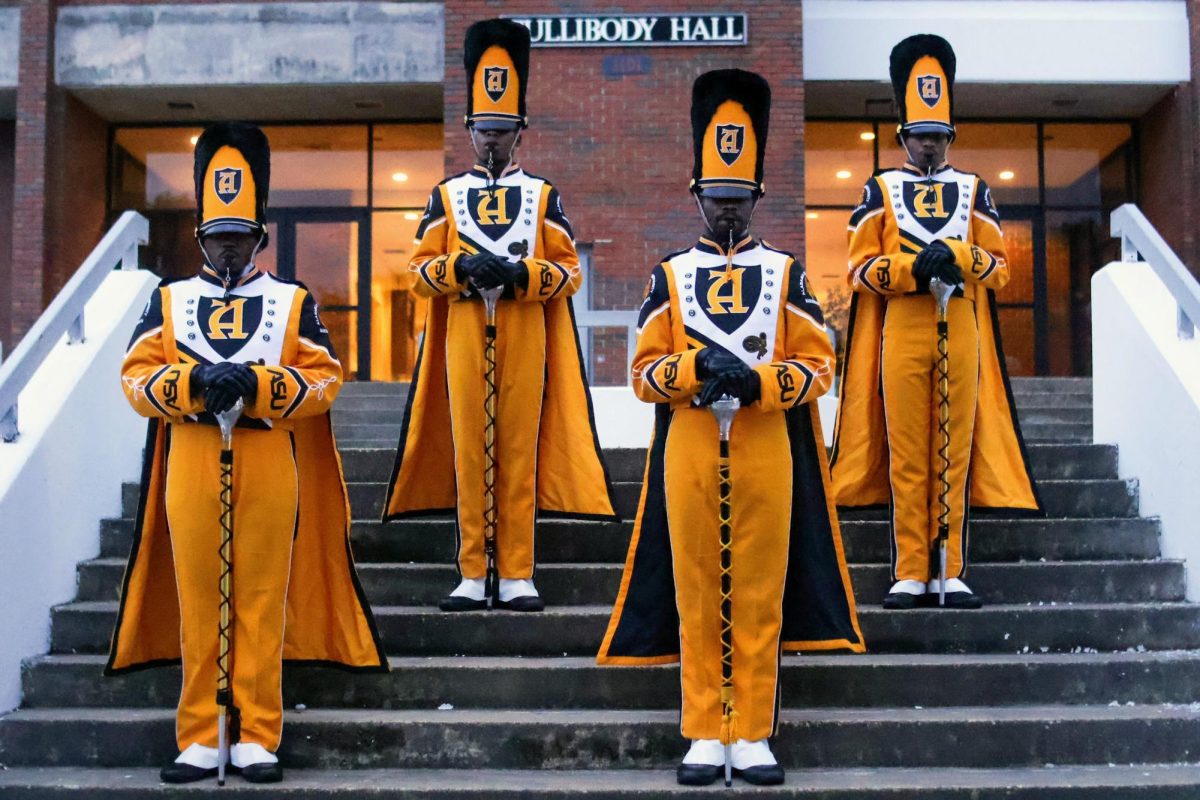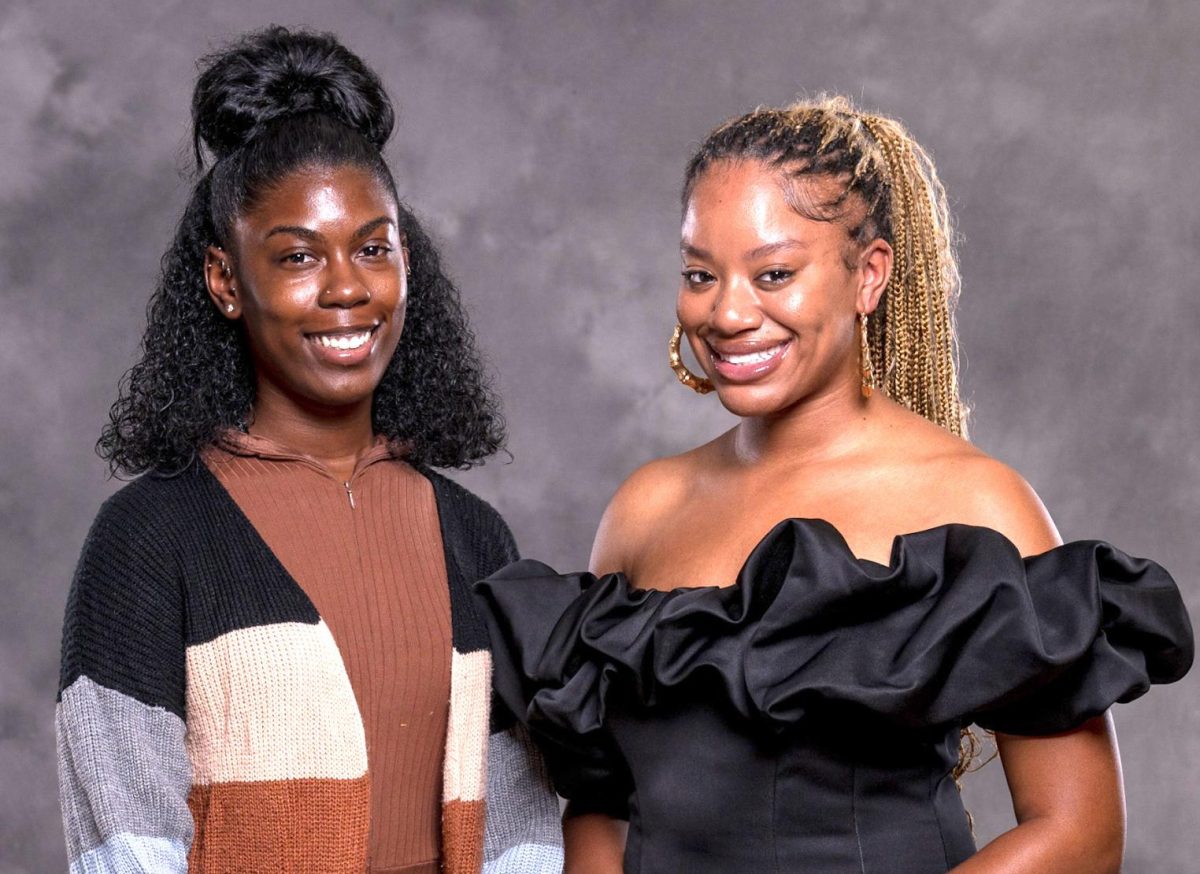For university seniors or any student looking for guidance on career paths and jobs, Alabama State University’s “Lunch and Learn With VISA” provided that opportunity.
The event occurred on Feb. 15 and featured a panel of four VISA representatives who explored some of the exciting careers offered by their company and provided insight and guidance on ways students can navigate their professional journeys.
The four VISA panelists were alumni: Eugene Griffin ‘19, director of North American Emerging Merchants Sales; Tyrone Welch ‘08, Senior Business Analyst within the Corporate IT division; Alicia Chaney Anderson ‘16, Senior Recruiter; and Rachine Francis ‘04, Video Streaming and Staff Systems Engineer, based out of Foster City and San Francisco, California.
“The Lunch and Learn is a raw conversation about how you can navigate your career journey and how you can be successful at it,” Anderson said. “We all are happy to be here to give students the resources and the tools to be great. And to let them know that everywhere you go you are a Hornet and integrity should always go before you.”
Griffin said the takeaway he hoped students received is that there are many career avenues for students to explore.
“… If there’s anything that we can do, I want the students to realize that there are people out there who look like them who came from the same background they came from that are doing things in higher corporations…we want to get more students with VISA and give them the opportunity to get in the door,” Griffin said.
VISA offers mentorship programs and internships, as well as financial literacy.
The speakers all agreed that no two career journeys will look exactly the same.
“They can be public-facing or behind the scenes, fast-paced or detailed and slower in nature. One thing is for sure though – there are plenty of career options in several industries for good communicators and business students out there, especially with the digitization of the industry constantly evolving,” Welsh said.
Francis wanted to encourage the attendees that they should never lose sight of their potential.
“When I was at school, I was always told as an HBCU student you won’t be able to get a job, they don’t hire you,” Francis said. “You’re in the bottom of the class of all the other universities. It was always something kind of negative. We are living proof that that’s not true …We had to come back and let the students know, ‘Yes You Can.’ You can absolutely work here or at any other company. Alabama State will prepare you to go out into this corporate structure, out into the world, and compete with any and everybody across the globe.”
The panel discussion touched on several topics, including:
(1) Don’t be afraid to try something new. “Figuring out what you want in a career can be daunting, but taking leaps of faith, exploring new opportunities, and inquiring about industries you’ve never even considered might pleasantly surprise you and the outcomes of your internship/job search,” Anderson said. “Have a Plan B in case your Plan A doesn’t work out.”
(2) Negotiate salaries. “Know your value and worth and articulate it confidently. That’s the number one rule,” Francis said. “I’ve learned that when you don’t have any experience outside of practicum and internships you must get some dirt on you first before you start requesting things and asking for this salary or that salary…As you get more experience and make yourself more viable as a potential employee, then you can discuss compensation.”
(3) Job Hopping. “Don’t fall into a career that’s not going to pay you your worth, and if you do, and you need it just for the experience or you need the money right then, have an exit plan for a new position. Don’t stress yourself for little or no compensation. Look for a career that you are passionate about and one that values you.”
(4) Build a Professional Network. “Find a community or mentors to help you in your professional journey. No one gets to where they are by themselves,” Welch said. “Finding and maintaining relationships is key to anyone’s success.”
(5) Arm Yourself by Being Prepared. “Arm yourself with wisdom from people who’ve been there. Someday, you’ll be able to return the favor for the next generation,” Griffin said. “Also, know how to tell your story and sell yourself as the best person for that job.”
The panelists emphasized that in order to stand out from other employment applicants, students should set up websites with their relevant information, including videos, if desired, and submit a digital resume.
“Everyone in this room could be a trailblazer and pave the way for people. Ultimately, I think (the Black professional experience) looks different for everyone. Sometimes you should fight it, sometimes you embrace it; but I think at the very least, people should realize the value in it,” said Welch.
Categories:
Black professionals advise students on navigating professional journey
February 17, 2024

The four VISA panelists encouraged students to take steps to navigate their professional journey. The alumni who returned are Eugene Griffin ‘19, Tyrone Welch ‘08, Alicia Chaney Anderson ‘16, Senior Recruiter; and Rachine Francis ‘04.
Story continues below advertisement
0
More to Discover
About the Contributor


